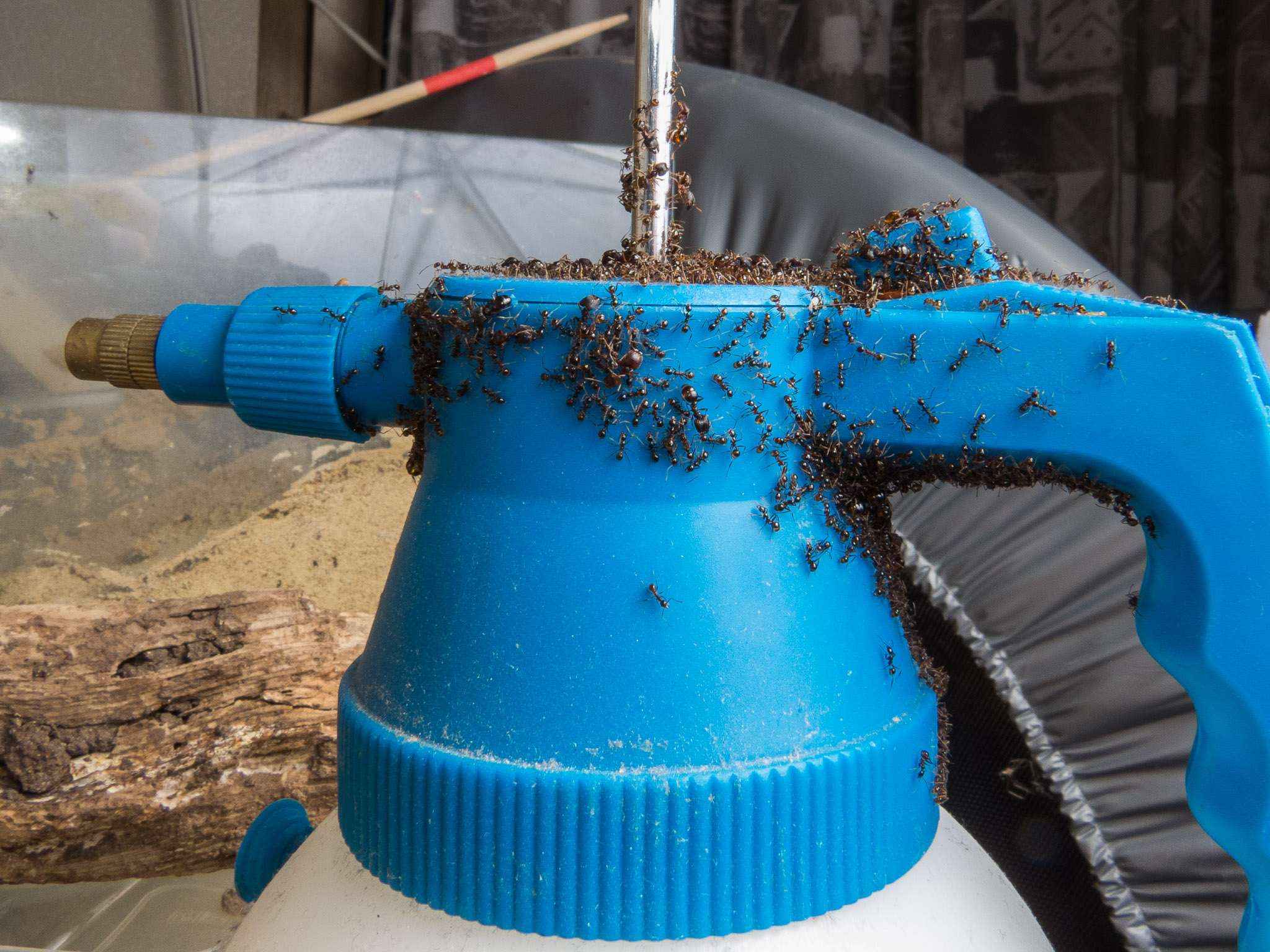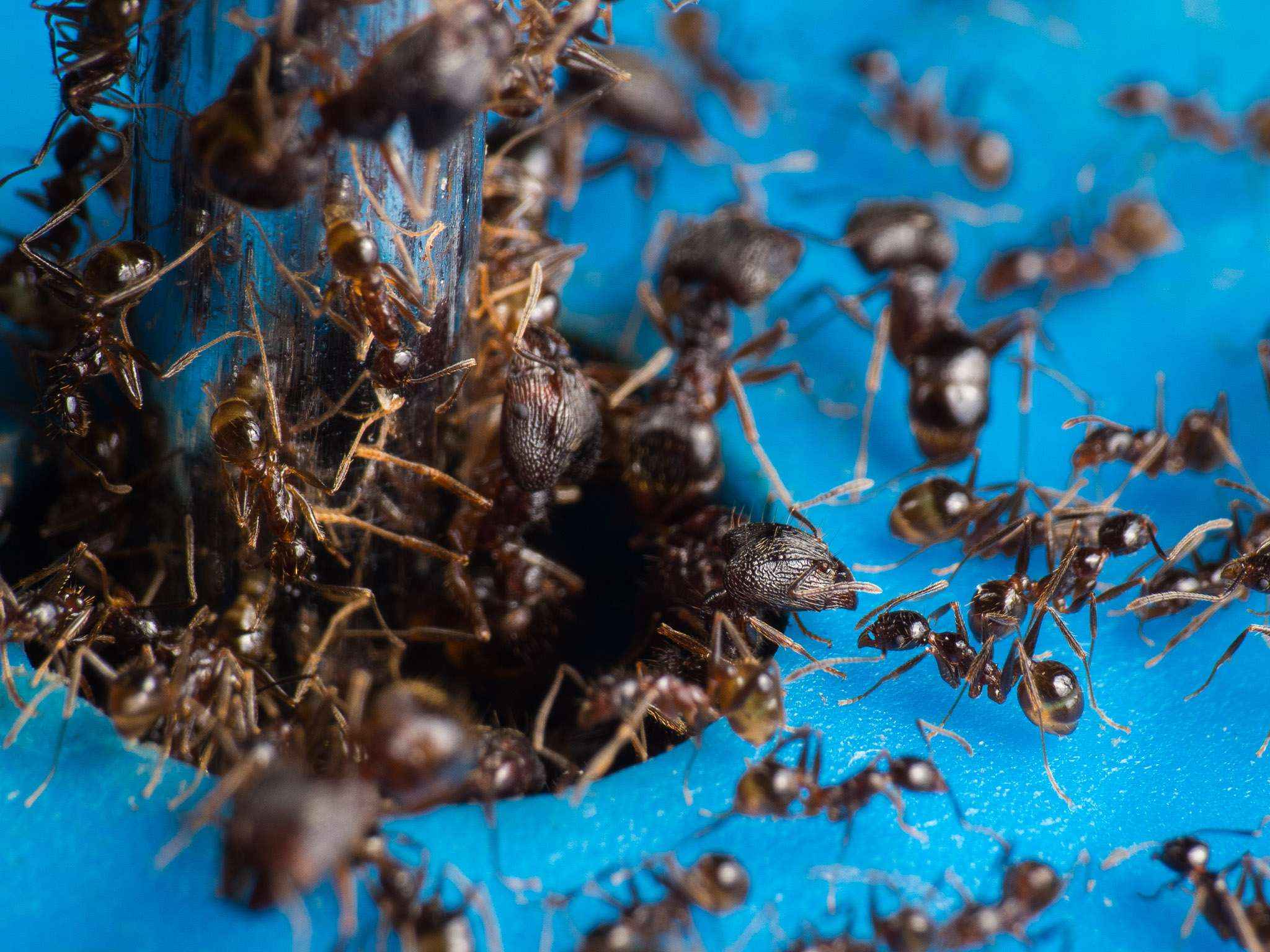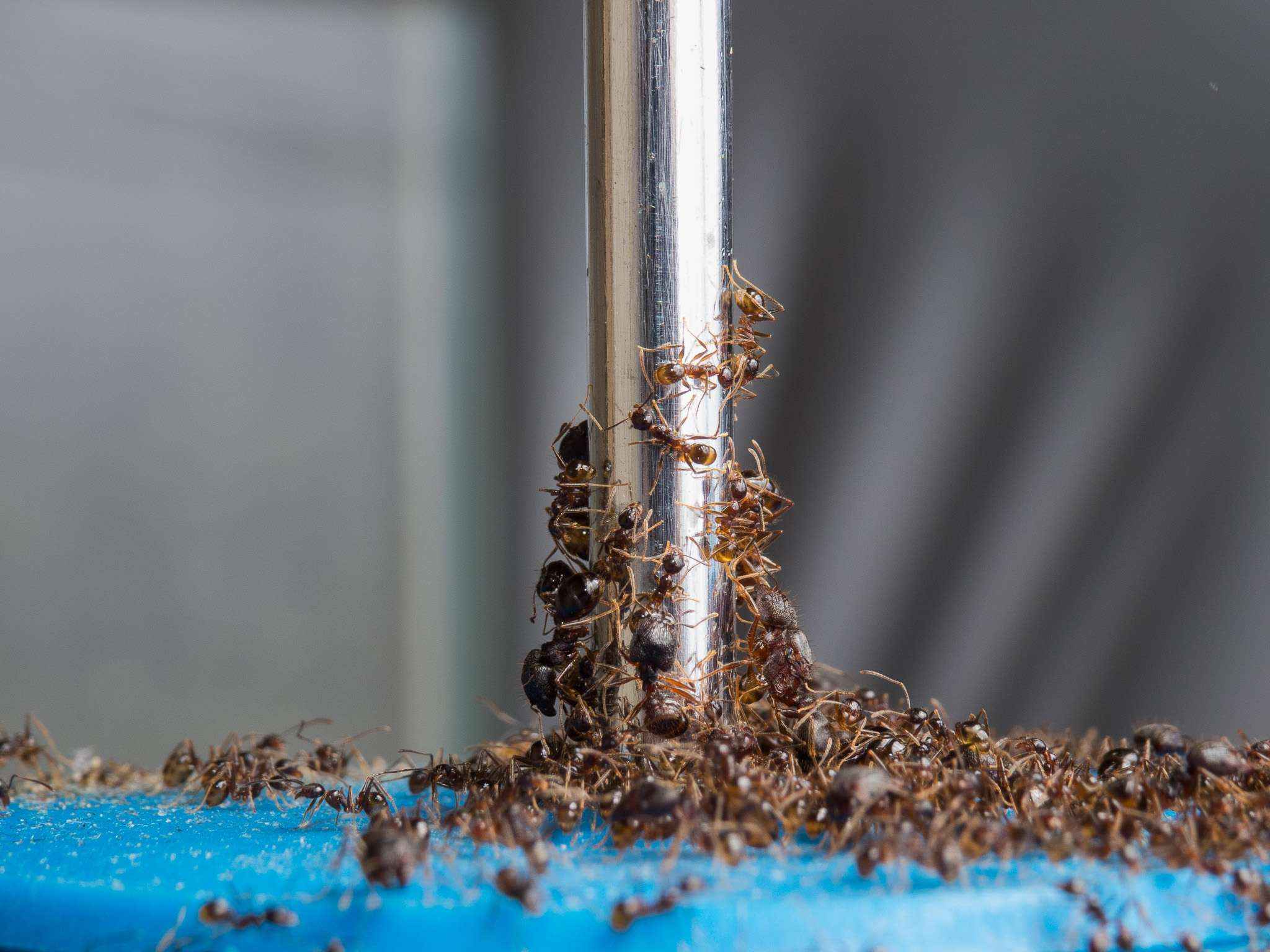- Formiculture.com
- Forums
- Gallery
- Members
- Member Map
- Chat

Free range ants
Started By
smares
, Jun 20 2019 6:33 PM
3 replies to this topic
#1
 Offline
-
Posted June 20 2019 - 6:33 PM
Offline
-
Posted June 20 2019 - 6:33 PM
Just discovered 2 of my Tetramorium colonies have small holes where the hot glue didn't cover. They have been free ranging my room for a while I'd guess. I thought the workers I was seeing in my room were coming from outside colonies but low and behold, it's my own ants. They managed to kill one of my spider slings. I'm more impressed than mad.
I was wondering if it's such a bad thing since they are too small to hurt me and they seem like good pest control. I know bee hives can be managed in a similar way where the openings are large enough for workers to get out of but small enough to keep the queen in. Just something to think about.
I was wondering if it's such a bad thing since they are too small to hurt me and they seem like good pest control. I know bee hives can be managed in a similar way where the openings are large enough for workers to get out of but small enough to keep the queen in. Just something to think about.
#2
 Offline
-
Posted June 20 2019 - 7:03 PM
Offline
-
Posted June 20 2019 - 7:03 PM
The moment they find a suitable nest location (and ants prefer virtually any location other than a typical formicarium), they will attempt to relocate the entire colony, including the queen.
Even if the queen doesn't appear to be able to escape the enclosure, the ants will move the brood and everything over to the new nesting location and will work without end to move the queen, whether by chewing to enlarge a hole, or pulling her to help her climb an otherwise impassable area.
I lost a few colonies when I was younger because I tried this. Even when you think you have a foolproof system to observe these "free ranging" ants, eventually, the ants will prove you wrong.
- Barristan and smares like this
byFormica® is the manufacturer of the iconic nectar feeders and Sunburst Ant Nectar.
byFormica ant products always deliver consistent performance, convenience,
and reliability, making them among the most beloved ant foods and kit enjoyed by
ant keeping enthusiasts worldwide. For more information, visit www.byFormica.com.
#3
 Offline
-
Posted June 20 2019 - 11:03 PM
Offline
-
Posted June 20 2019 - 11:03 PM
As terry said it might probably not work.
The only way it could is by making sure that there are no other suitable nesting locations in your room. If the ant species nests in moist soil you can make sure that there isn't any near them (no flower pots etc.). This will be a lot harder for species which don't require any extra moisture in their nest like most ant species which live in dead wood or weave their nests. That's the reason why these species are also considered as more dangerous to infest a house/room if escaped.
So depending on how moist your Tetramorium species want their nest it could work if you removed all flower pots etc, so they can't find any moist soil or other moist places to move there.
I just want to add a small part of an interview with Bert Hölldobler (he is a German myrmecologist and wrote together with Edward O. Wilson books like "The Ants", "The Superorganism", "Journey to the Ants"):
SPIEGEL: Herr Hölldobler, können Sie uns Ameisen als Haustiere empfehlen?
Hölldobler: In meiner Bubenzeit durfte ich tatsächlich eine Kolonie von Rossameisen in meinem Zimmer halten. Schöne Tiere waren das, kastanienbraun und glänzend. Ich sah bald, dass sie vorwiegend nachts auf Nahrungssuche waren. Deshalb hängte ich einen Zettel an die Zimmertür, dass erst ab dem Nachmittag gesaugt werden durfte. Heute habe ich keine Ameisen mehr I'm Haus, aber wie ich höre, ist dieses Hobby in Deutschland inzwischen recht populär geworden. Man kann sogar jede Menge Völker I'm Handel kaufen.
Translation:
SPIEGEL: Mr. Hölldobler, can you recommend ants as pets?
Hölldobler: In my youth I could keep a colony of carpenter ants in my room. Beautiful animals they were, maroon and glossy. I soon noticed that they were looking for food mainly through the night. So, I hang a note on the door so that my room wasn’t vacuumed before afternoon. Nowadays I don’t keep ants in my house anymore, but as I’ve heard this hobby has become quite popular in Germany. You can even buy a whole bunch of colonies commercially.
So he found a way to not make the ants move into a new nest ![]() . According to the description he probably kept Camponotus ligniperda in his room.
. According to the description he probably kept Camponotus ligniperda in his room.
I also tried allowing ants to free range in my room. This worked quite well with Lasius and Pheidole species if they couldn't find any good nesting location but as soon as they found one they tried to move in. For example my Pheidole spathifera colony could free range a little bit after I noticed that the escape barrier was not working at one spot. I thought: "Well let them crawl around a little bit, so I can take some nice pictures on the table". Unfortunately they tried to move into a spray bottle filled with water that I used to moisturize their soil nest...


As the colony becomes larger and larger their foraging radius increases, so they might search in different rooms for new nesting locations and food...
Edited by Barristan, June 20 2019 - 11:18 PM.
- TennesseeAnts likes this
#4
 Offline
-
Posted June 21 2019 - 9:42 AM
Offline
-
Posted June 21 2019 - 9:42 AM
Wow great pics! I'm glad I'm not the only one who thought of trying this:)
1 user(s) are reading this topic
0 members, 1 guests, 0 anonymous users















